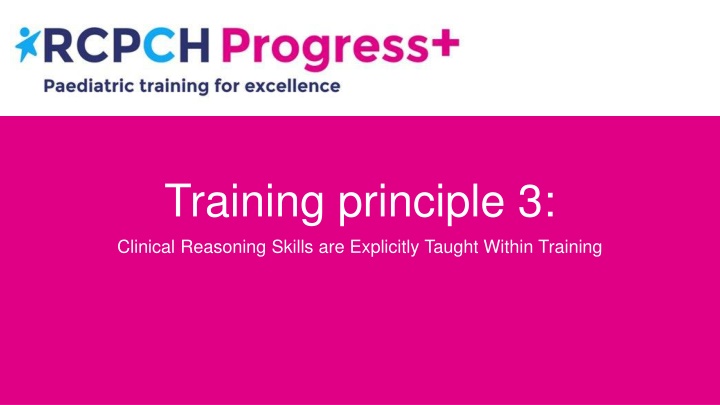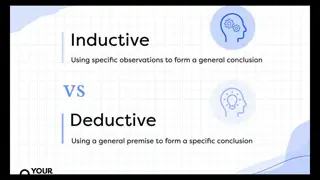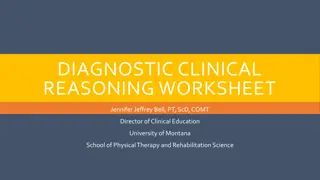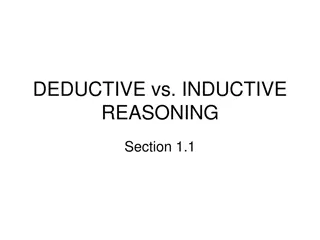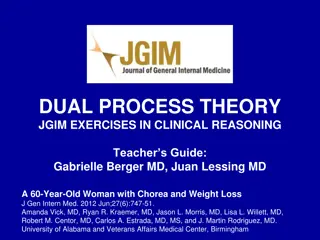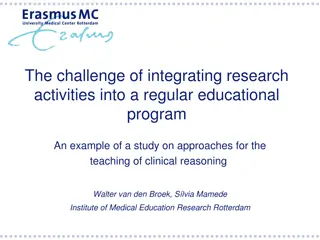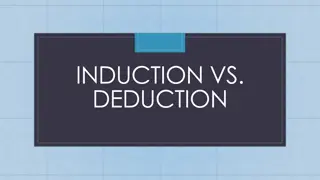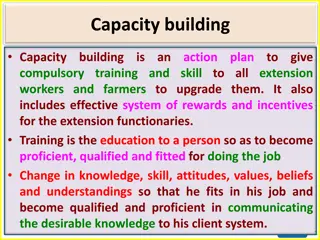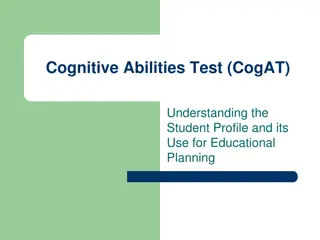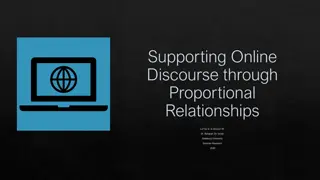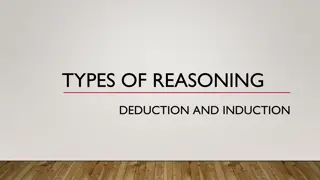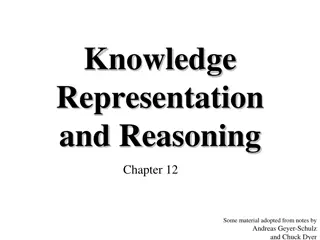Clinical Reasoning Skills in Training: An Essential Focus
Clinical reasoning skills are crucial for trainees in analyzing, evaluating evidence, and formulating diagnoses and management plans. They must actively learn this process through exposure to diverse patient scenarios and reflection. Be creative in nurturing these skills through various environments like training clinics, simulations, and departmental meetings.
Download Presentation

Please find below an Image/Link to download the presentation.
The content on the website is provided AS IS for your information and personal use only. It may not be sold, licensed, or shared on other websites without obtaining consent from the author.If you encounter any issues during the download, it is possible that the publisher has removed the file from their server.
You are allowed to download the files provided on this website for personal or commercial use, subject to the condition that they are used lawfully. All files are the property of their respective owners.
The content on the website is provided AS IS for your information and personal use only. It may not be sold, licensed, or shared on other websites without obtaining consent from the author.
E N D
Presentation Transcript
Training principle 3: Clinical Reasoning Skills are Explicitly Taught Within Training
Clinical Reasoning Trainees need to learn to analyze a clinical situation, weigh the evidence presented to them and arrive at a diagnosis and management plan - utilizing their own clinical experience and knowledge during the process. This is clinical reasoning Learning clinical reasoning skills is not a passive process it must be actively taught
Learning Clinical Reasoning is a Circular Process Examination and history Clinical scenario Trainees need exposure to common and uncommon patient scenarios to gain expertise Trainers can support trainees by facilitating these encounters and encouraging reflection through debrief after the fact Reflection on own process and outcome of encounter. Debrief Have I seen this before? pattern recognition, utilizing existing knowledge Weighing the evidence what is the primary differential Making a plan and ongoing management
Be creative! Clinical reasoning skills can be nurtured in a number of environment Training clinics Simulation both in person and virtual Departmental meetings and grand rounds Ward round and ward based teaching CBDs and Mini-CEXs can provide evidence for the evolution of these skills Every department is different and will offer different opportunities for it s trainees work to your strengths to offer a unique perspective
Good Clinical Reasoning is Essential for the Paediatricians of the Future There are no double-blind controlled studies of clinical reasoning[ ] Teaching programs are based principally on pragmatic considerations, educational theory, experience, and (frankly) trial and error. There is no justification to apologize for these attributes, because despite these shortcomings, our medical schools and training programs do yield practitioners who excel in clinical problem solving and who effectively navigate the complexities of diagnosis and treatment. We may not know precisely how they become expert problem solvers, but over time they do. Kassirer JP. Teaching clinical reasoning: case-based and coached. Academic medicine. 2010 Jul 1;85(7):1118-24.
See our case studies and more on the RCPCH website www.rcpch.ac.uk/training-principle-3 www.rcpch.ac.uk/progressplus
